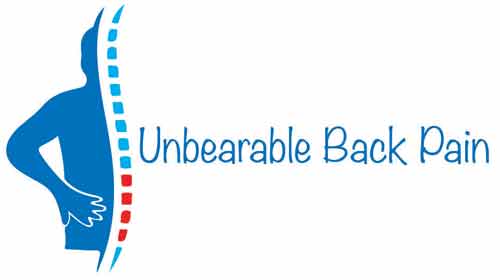
Back pain can be a significant barrier to a fulfilling sex life, causing discomfort and reducing the frequency of intimate moments. The physical discomfort can lead to emotional stress, impacting self-esteem and intimacy with a partner. The pain can make one apprehensive about engaging in sexual activity, leading to frustration and tension in relationships. Open communication and a willingness to adapt can help manage these challenges, fostering a supportive environment where both partners feel valued and understood.
Several conditions can cause back pain that interferes with sexual activity, including:
Herniated Discs: Discs can bulge or rupture, pressing on nerves and causing pain.
Muscle Strain: Overuse or injury can strain the back muscles.
Arthritis: Degeneration of the spine’s joints can lead to chronic pain.
Sciatica: Compression of the sciatic nerve can cause shooting pain down the legs and lower back.
These conditions can lead to restricted movement, discomfort during certain positions, and fear of exacerbating the pain.
It’s important to talk about your back pain openly with your partner. It helps set realistic expectations and fosters empathy. Together, you can explore comfortable and pleasurable positions for both of you. Honesty about your pain levels and what feels good can prevent misunderstandings and enhance intimacy.
Persistent back pain should be evaluated by a healthcare provider. They can diagnose the underlying cause and recommend treatments, such as physical therapy, medication, or lifestyle changes. Seeking professional advice ensures that you are not exacerbating your condition and can provide strategies for maintaining an active sex life.
Why Choosing the Right Position Is Crucial for Avoiding Back Strain
Selecting the appropriate sex positions is vital for avoiding strain on the back. The right position can minimize pain and maximize comfort, allowing for a more enjoyable experience. Positions that reduce the need for excessive movement or awkward angles are often the most beneficial.
Proper support and alignment are key to reducing back discomfort. Maintaining a neutral spine position can prevent undue stress on the back. Using supportive surfaces and ensuring both partners are comfortable can enhance the experience and reduce the risk of pain.
Pillows and other props can be game-changers for those with back pain. They provide additional support, helping to maintain alignment and reduce pressure on the back. Experimenting with different placements can help find the most comfortable setup.
Pay attention to your body’s signals during intimacy. If a position feels painful, stop and adjust. Understanding the difference between discomfort and pain is essential for preventing injury. Communicate with your partner about what feels good and what doesn’t.
The ‘Spoon’ Position for Minimal Back Movement
The ‘spoon’ position is ideal for minimizing back movement and maintaining comfort. Both partners lie on their sides, with the receiving partner’s back against the giving partner’s front. This position allows for gentle thrusting and easy adjustments without putting strain on the back.
Seated Positions That Offer Back Support
Seated positions can provide excellent back support. Sitting on a sturdy chair or at the edge of the bed with your partner straddling you helps keep the back aligned. Both partners can control the depth and speed of movements, making it easier to avoid painful angles.
Gentle Missionary: Modifications to a Classic Position
The missionary position can be modified to reduce back strain. Placing a pillow under the hips of the receiving partner can help maintain a neutral spine. The giving partner can support their weight on their elbows and knees rather than leaning forward, reducing pressure on the back.
Standing Positions That Can Alleviate Pressure on the Back
Standing positions can help take pressure off the back. One partner can bend forward over a surface like a table, allowing the other to enter from behind. This position lets gravity assist in keeping the back aligned and reduces the need for bending or twisting.
Stress-Free Doggy-Style: Adaptations for Better Back Care
Doggy style can be adapted to be more back-friendly by using pillows under the receiving partner’s chest and hips. This support helps maintain spinal alignment and reduces strain. The giving partner can also kneel rather than stand to reduce pressure on their own back.

Keeping the Spark Alive
Non-penetrative acts, such as oral sex, mutual masturbation, and sensual touch, can be excellent alternatives when back pain makes traditional positions challenging. These activities can be equally satisfying and help maintain intimacy without exacerbating back pain.
Massages can be a great way to relieve back tension before engaging in intimacy. They help relax the muscles, increase blood flow, and create a soothing environment. A gentle massage can also serve as foreplay, enhancing the overall experience.
Emotional intimacy is as important as physical intimacy. Engaging in open, honest communication, spending quality time together, and expressing affection can strengthen your bond. Emotional closeness can make physical intimacy more fulfilling and help manage the stress of dealing with back pain.
Managing back pain effectively involves a holistic approach. This includes regular exercise to strengthen the back, maintaining a healthy weight, practicing good posture, and using pain management techniques such as heat, ice, and medication as needed. By addressing back pain comprehensively, you can improve your overall quality of life and enjoy a more satisfying sex life.
Back pain doesn’t have to be a barrier to a fulfilling sex life. By understanding the impact of back pain, communicating openly with your partner, and adopting comfortable sex positions, you can maintain intimacy and enjoy physical closeness without discomfort. Remember to listen to your body, use supportive props, and explore alternative forms of intimacy. Consulting a healthcare provider for persistent pain can provide additional strategies for managing your condition. With patience and creativity, you can keep the spark alive and nurture a healthy, satisfying relationship.
Final Thoughts
Navigating intimacy while dealing with a bad back can be challenging, but it’s all about finding what works best for your body. Open communication, experimenting with supportive positions, and using aids designed for comfort can help you maintain a fulfilling and pain-free experience.
To enhance your comfort and make intimacy more enjoyable, I recommend trying an excellent book “Sex, Love, Back Pain and You” that’s specifically written for people (both male and female) who have back problems and want to restore their enjoyment of a natural act.

Don’t let back pain hold you back—explore options that bring comfort, connection, and confidence back into your life!
Here’s a little transparency: Our website contains affiliate links. This means we may receive a small commission if you click and make a purchase. Don’t worry, there’s no extra cost to you. It’s a simple way you can support our mission to bring you quality back relief content.”

